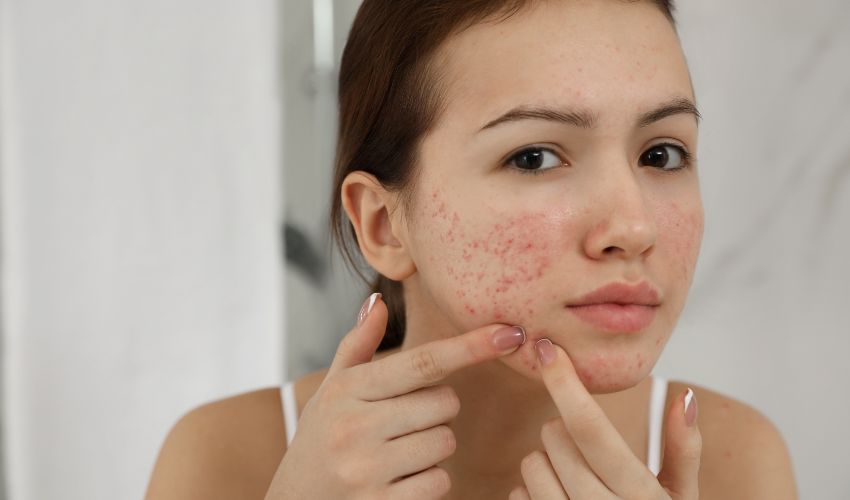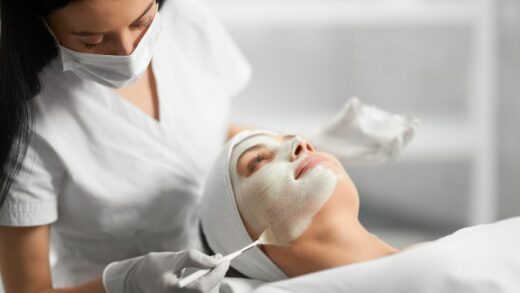Acne and other skin problems are common conditions that affect people of all ages and skin types. These conditions can be frustrating and can have a significant impact on a person’s self-esteem. However, understanding the causes, symptoms, and treatments of these conditions can help you achieve healthy, clear skin. In this article, we will explore some of the most common skin problems and provide tips on how to manage them.
Acne:
Acne is a common skin problem that occurs when hair follicles become clogged with oil and dead skin cells. This can result in pimples, blackheads, and whiteheads. Acne can be caused by a variety of factors, including genetics, hormones, and stress.
Symptoms of acne can include:
- Pimples
- Blackheads
- Whiteheads
- Redness
- Swelling
- Pain
Treatments for acne can include over-the-counter medications, prescription medications, and lifestyle changes. Some common treatments include:
- Benzoyl peroxide
- Salicylic acid
- Retinoids
- Antibiotics
- Light therapy
- Changes to diet and exercise habits
Rosacea:
Rosacea is a chronic skin condition that causes redness, inflammation, and acne-like breakouts. Rosacea can be triggered by a variety of factors, including sun exposure, hot and spicy foods, and alcohol.
Symptoms of rosacea can include:
- Redness on the face, neck, and chest
- Acne-like breakouts
- Swelling
- Burning or stinging sensation
- Eye irritation
- Enlarged pores
Treatments for rosacea can include topical creams, oral antibiotics, and laser therapy. Some common treatments include:
- Topical creams containing metronidazole, azelaic acid, or sulfur
- Oral antibiotics, such as tetracycline or doxycycline
- Laser therapy to reduce redness and inflammation

Eczema:
Eczema, also known as atopic dermatitis, is a chronic skin condition that causes dry, itchy, and inflamed skin. Eczema can be triggered by a variety of factors, including environmental factors, such as cold weather or harsh chemicals, and genetics.
Symptoms of eczema can include:
- Dry, itchy skin
- Redness
- Swelling
- Cracking or peeling skin
- Blisters
Treatments for eczema can include moisturizers, topical corticosteroids, and lifestyle changes. Some common treatments include:
- Moisturizing creams and ointments
- Topical corticosteroids to reduce inflammation
- Avoiding triggers, such as harsh chemicals or allergens
Psoriasis:
Psoriasis is a chronic skin condition that causes patches of thick, red, and scaly skin. Psoriasis can be triggered by a variety of factors, including stress, infections, and certain medications.
Symptoms of psoriasis can include:
- Thick, red patches of skin
- Silvery scales
- Dry, cracked skin
- Itching or burning sensation
- Joint pain
Treatments for psoriasis can include topical creams, oral medications, and light therapy. Some common treatments include:
- Topical creams containing corticosteroids or vitamin D analogs
- Oral medications, such as methotrexate or cyclosporine
- Light therapy to reduce inflammation and promote healing
Melasma:
Melasma is a common skin condition that causes brown or gray patches on the skin, typically on the face. Melasma is often triggered by hormonal changes, such as pregnancy or the use of birth control pills.
Symptoms of melasma can include:
- Brown or gray patches on the skin, typically on the face
- Irregular borders
- Symmetrical appearance
Treatments for melasma can include topical creams, chemical peels, and laser therapy. Some common treatments include:
- Topical creams containing hydroquinone, tretinoin, or corticosteroids
- Chemical peels to remove outer layers of skin
- Laser therapy to reduce pigmentation
FAQs:
Can stress cause acne and other skin problems?
Yes, stress can trigger a variety of skin problems, including acne, rosacea, and eczema.
Can diet affect acne and other skin problems?
Yes, certain foods, such as dairy products and high-glycemic-index foods, have been linked to acne.

Can acne and other skin problems be hereditary?
Yes, genetics can play a role in the development of skin problems, such as acne and psoriasis.
What are some natural remedies for acne and other skin problems?
Some natural remedies for skin problems include tea tree oil, aloe vera, and green tea.
When should I see a dermatologist for acne and other skin problems?
You should see a dermatologist if your skin problems are severe, do not respond to over-the-counter treatments, or are causing you significant distress.
Conclusion:
Acne and other skin problems can be frustrating and embarrassing, but with the right treatment and lifestyle changes, you can achieve healthy, clear skin. By understanding the causes, symptoms, and treatments of these common conditions, you can take steps to manage your skin problems and improve your overall quality of life. If you are experiencing skin problems, be sure to consult with a dermatologist to develop a personalized treatment plan.






















